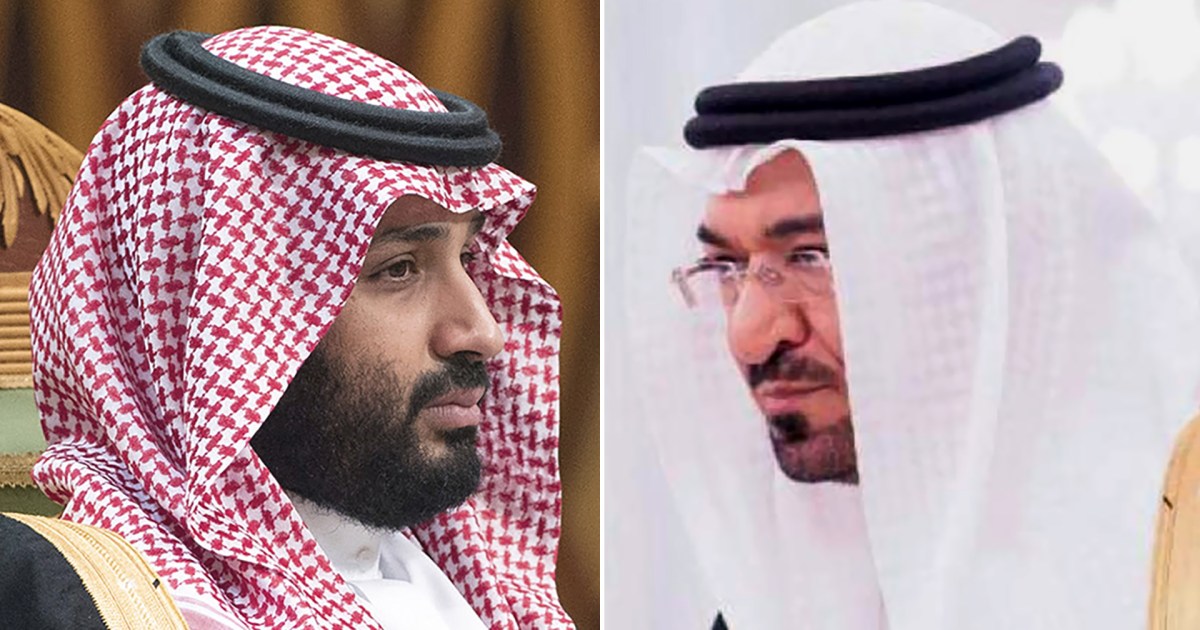British journalist David Hearst said that the former Saudi intelligence official, Saad al-Jabri, is ready for a comprehensive confrontation with the Saudi regime, and that he has become more dangerous to Crown Prince Mohammed bin Salman than the journalist Jamal Khashoggi could have been.
Hearst - in an article for the British Middle East Eye website, titled "Saad Al-Jabri: The Saudi Who Can Overthrow Mohammed Bin Salman" - believes that Khashoggi's ghost is still haunting bin Salman, and that Al-Jabri is determined to prevent the killer from enjoying the spoils. His authority, which leads to one conclusion, which is that Mohammed bin Salman is now facing the greatest external challenge for his attempt to seize power.
He pointed out that the details of the lawsuit filed by Al-Jabri against the Saudi crown prince in an American court reveal a big picture, which is that the power battle that began with the ouster of Muhammad bin Nayef from the mandate of the Covenant, has not ended yet.
Hearst said that Mohammed bin Salman - who seized the position of Muhammad bin Nayef - has not succeeded since then in achieving victory or obtaining legitimacy, and that this is the reason for his keenness to eliminate all those close to Muhammad bin Nayef, as he targeted Khashoggi first while targeting Al Jabri right Now.
The most dangerous opponent
Hearst referred to the information recently disclosed about the "Tiger Squad" for assassinations, which consisted of 50 people and was tasked with assassinating Al-Jabri. It is alleged that it arrived at Toronto's airport and tried to enter Canada, and it includes a forensic expert to erase the effects of the crime.
He said that the hunting that was being pursued by the assassination team - that is, Al-Jabri - was more dangerous for the Saudi crown prince than Khashoggi could have been, as Al-Jabri was the right arm of Prince Muhammad bin Nayef in the Ministry of Interior, and he was in the rank of a minister, and he was privy to all secrets. Embarrassment in the Ministry of Interior, including the involvement of King Salman and his son, the Crown Prince, in the funds of the Ministry's Counter-Terrorism Fund, and sums amounting to tens of millions of Saudi riyals per month.
Jabri, then, was - and still is - an insider, unlike Jamal Khashoggi, who was nothing but a well-connected journalist, and after the end of his mission as a journalist for the former security official, he was outside the royal court.
He also indicated that other personalities from within the royal court are at odds with the bin Salman regime, but Al-Jabri differs from them by being ready to confront the regime completely, as well as that he has nothing to lose.
He gave the example of Prince Ahmed bin Abdulaziz - the younger brother of King Salman - who alluded to his dissatisfaction with the way the war was being conducted in Yemen, when he approached Yemeni and Bahraini demonstrators outside his home in London, but did not go any further.
Bin Nayef also remained silent about the humiliation he was subjected to, as did many other princes who were stripped of their properties at the Ritz-Carlton Hotel.
The crown prince is in trouble
Hearst referred to Al-Jabri's strong relationship with the US Central Intelligence Agency (CIA), and said that it would not remain on the sidelines of the open war between al-Jabri and the Saudi crown prince, and that al-Jabri did his best to confirm in his lawsuit against bin Salman his strong relationship with US intelligence.
He said that Al-Jabri claims that there are few people alive who possess information about Mohammed bin Salman's dangerous secrets as well as his possession, and he has left instructions to publish the tapes that he recorded, which incriminate bin Salman, as they are tantamount to insurance for his life.
The writer concluded that the only hope for the Saudi crown prince to avoid disaster is Trump's victory in the US presidential elections next November, because if he loses, almost everything will crash with him.

